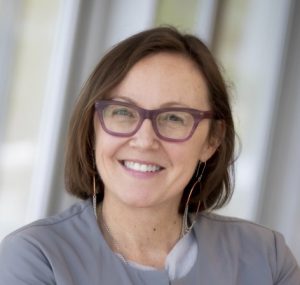
Paola Arlotta
Harvard University
USA
EMBO Workshop
This conference will take place at EMBL Barcelona. Proof of COVID-19 vaccination, recovery or negative test is required for on-site attendance. Please see EMBL’s COVID-19 safety policy for on-site events.
Time is inherent to biological processes. It determines the order of events and the speed at which they take place. This is particularly obvious during embryonic development where the sequence and rate of events ensures that structures develop in the right place, at the right time. Modifying the developmental tempo can affect the final size and composition of tissues, as well as their plasticity and function. Strikingly, comparisons between species reveals that, although the order and underlying molecular mechanisms are often indistinguishable, the pace at which they advance can differ substantially. Hence comparison of biological processes between species is likely to provide insight into time-keeping mechanisms and how they change. Despite the centrality of these questions to embryo development, and evolution, it has remained an understudied topic.
This conference will foster dialogue between researchers from different fields to stimulate new ideas and catalyse the study of the genetic, molecular and cellular mechanisms controlling the tempo of embryonic development.

Max Planck Institute for Molecular Biomedicine
Germany
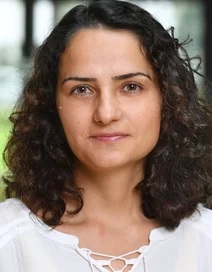
Max Planck Institute for Molecular Genetics
Germany
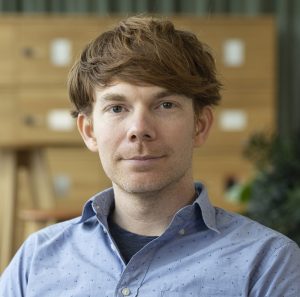
University of Basel
Switzerland
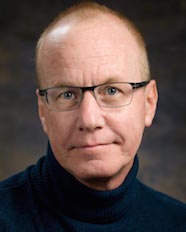
Northwestern University
USA

EPFL
Switzerland

Pompeu Fabra University
Spain
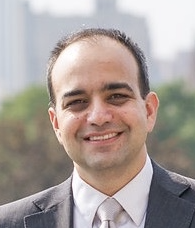
University of Rochester
USA
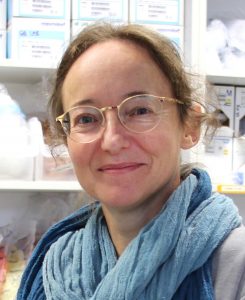
Max Planck Institute of Molecular Cell Biology and Genetics
Germany
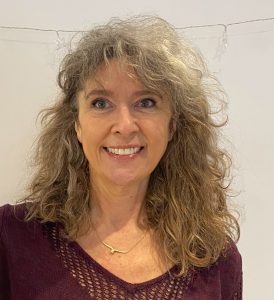
King’s College London
UK
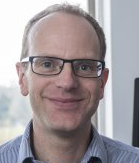
John Innes Centre
UK
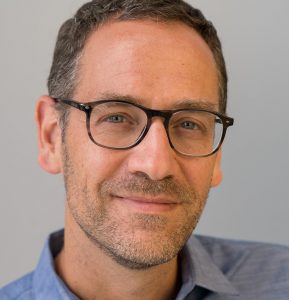
University of Geneva
Switzerland

University of Washington
USA

MRC Laboratory of Molecular Biology
UK
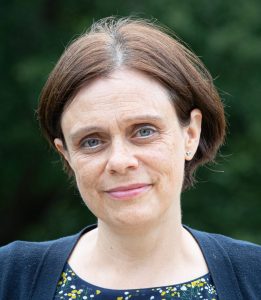
University of Cambridge
UK

Columbia University
USA
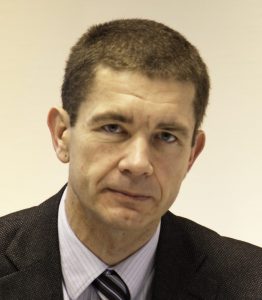
Harvard University
USA
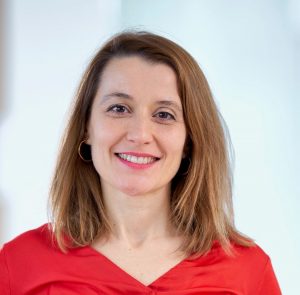
Ludwig-Maximilians-Universität München
Germany
Max Planck Institute of Molecular Cell Biology and Genetics
Germany
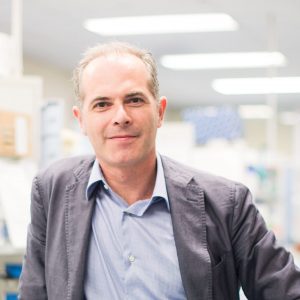
Veneto Institute of Molecular Medicine
Italy

University of Oxford
UK

The University of Texas Southwestern Medical Center
USA
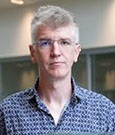
The Francis Crick Institute
UK
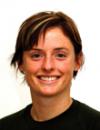
The University of Edinburgh
UK

EMBL Barcelona
Spain
Got something to say? Tweet it! #EMBODevTempo
| Time | Speaker |
|---|---|
| 18:00 – 20:00 | (Optional) Social programm: Local tour |
| Time | Speaker |
|---|---|
| 08:30 – 09:30 | Registration |
| 09:30 – 09:40 | Opening remarks Scientific Organisers |
| Session 1: Developmental time (part 1) Session Chair: Miki Ebisuya – EMBL Barcelona, Spain | |
| 09:40 – 10:10 | Keynote lecture: Understanding development and disease of the cerebral cortex: from embryos to Organoids Paola Arlotta – Harvard University, USA |
| 10:10 – 10:40 | Spatial organization through temporal dynamics in cellular communities Jordi Garcia-Ojalvo – Pompeu Fabra University, Spain |
| 10:40 – 11:10 | Timing control in gene regulatory networks: insights from T cell development Hao Yuan Kueh – University of Washington, USA |
| 11:10 – 11:40 | Coffee break |
| 11:40 – 11:55 | The regulatory mechanism behind limb heterochrony during tetrapod evolution Meng Zhu – Harvard Medical School, USA (Virtual Speaker) |
| 11:55 – 12:10 | Temporal regulation of neurogenesis Bassem Hassan- Paris Brain Institute, France |
| 12:10 – 12:40 | On the role of cell rearrangements in pattern formation Berta Verd – University of Oxford, UK |
| 12:40 – 13:10 | Using the segmentation clock to measure developmental time Olivier Pourquié – Harvard University, USA |
| 13:10 – 14:40 | Lunch break & Meet the speakers |
| Session 2: Cross-species comparison Session Chair: James Briscoe – The Francis Crick Institute, UK | |
| 14:40 – 15:10 | Timing and size: How a delay enables human brain enlargement Madeline Lancaster – University of Cambridge, UK |
| 15:10 – 15:40 | Timing in interspecies chimeras Jun Wu – UT Southwestern, USA |
| 15:40 – 15:55 | A stem cell zoo platform to study interspecies differences in developmental tempo Jorge Lazaro – EMBL Barcelona, Spain |
| 15:55 – 16:10 | Epigenetics-dependent temporal scaling mechanisms during brain development and evolution Quan Wu – RIKEN, Japan |
| 16:10 – 16:40 | Coffee break & Meet the speakers |
| 16:40 – 17:10 | Understanding the Hox timer by using pseudo‑embryos Denis Duboule – EPFL, Switzerland |
| 17:10 – 17:40 | Temporal regulation of signalling generates forebrain diversity Corinne Houart – King’s College London, UK |
| 17:40 – 18:10 | Flash talks Laia Caudet Segarra – Friedrich Alexander Universität Erlangen Nürnberg, Germany (Poster 43) Isabel Holguera – New York University, USA (Poster 59) Adrien Jolly – German Cancer Research Center (DKFZ), Germany (Poster 61) Hidenobu Miyazawa – EMBL Heidelberg, Germany (Poster 71) Matheo Morales – Yale University, USA (Poster 73) Alberto Rossello-Diez – Monash University, Australia (Poster 79) Shuai Sun – Max Planck Institute for Biology Tübingen, Germany (Poster 85) |
| 18:10 – 19:40 | Poster session 1 (odd numbers) with drinks & snacks |
| Time | Speaker |
|---|---|
| 06:30 – 07:30 | (Optional) Social programme: Run together |
| 09:00 – 09:30 | Registration |
| Session 3: Metabolism Session Chair: Megan Davey – University of Edinburgh, UK | |
| 09:30 – 10:00 | Keynote lecture: From Ontogeny to Mortality; Towards a Unified Framework of Growth, Metabolism and Lifespan Geoffrey West – Santa Fe Institute, USA |
| 10:00 – 10:30 | Keeping mitochondria in shape: a matter of life, death and differentiation Luca Scorrano – Veneto Institute of Molecular Medicine, Italy |
| 10:30 – 11:00 | Energetics of Biological Systems Jonathan Rodenfels – Max Planck Institute of Molecular Cell Biology and Genetics, Germany |
| 11:00 – 11:30 | Coffee break |
| 11:30 – 11:45 | Mitochondria-dependent metabolism regulates species-specific rates of neuronal development Ryohei Iwata – VIB-KU Leuven, Belgium |
| 11:45 – 12:00 | Mechanistic control of timescales in development Teresa Rayon – The Babraham Institute, UK |
| 12:00 – 12:30 | Timing the speed and duration of developmental processes during pancreas endocrine cell differentiation in mouse and human Anne Grapin-Botton – Max Planck Institute of Molecular Cell Biology and Genetics, Germany |
| 12:30 – 13:00 | Flexible gene expression dynamics and Drosophila development Rich Carthew – Northwestern University, USA |
| 13:00 – 14:30 | Lunch break & Meet the speakers |
| Session 4: Lifespan and diapause Session Chair: Maria Robles – Ludwig Maximilian University of Munich, Germany | |
| 14:30 – 15:00 | Protein turnover and longevity in mammals Sina Ghaemmaghami – University of Rochester, USA |
| 15:00 – 15:30 | Great ape organoids to explore human-specific development Grayson Camp – University of Basel, Switzerland |
| 15:30 – 15:45 | Metabolic regulation of developmental rate in mouse and human cells Margarete Diaz Cuadros – Harvard Medical School, USA |
| 15:45 – 16:00 | Evidence for a polygenic control of developmental timing in vertebrates Ali Seleit – EMBL Heidelberg, Germany |
| 16:00 – 16:30 | Coffee break & Meet the speakers |
| 16:30 – 17:00 | Metabolic enhancement of mammalian developmental pausing Aydan Bulut-Karslioglu – Max Planck Institute of Molecular Genetics, Germany |
| 17:00 – 17:30 | Cellular mechanisms of embryonic development and embryo-maternal interactions during implantation Ivan Bedzhov – Max Planck Institute of Molecular Biomedicine, Germany |
| 17:30 – 18:00 | Flash talks Natalia Benetti – Walter and Eliza Hall Institute of Medical Research, Australia (Poster 38) Megan Davey – University of Edinburgh, UK (Poster 48) Carla G. Silva – UMC Utrecht, The Netherlands (Poster 54) Girish Kale – Heidelberg University, Germany (Poster 62) Francisco Manuel Martin Zamora – Queen Mary University of London, UK (Poster 70) Victoria Mochulska – McGill University, Canada (Poster 72) Kurt Weir – Johns Hopkins School of Medicine, USA (Poster 88) |
| 18:00 – 19:30 | Poster session 2 (even numbers) with drinks & snacks |
| 20:00 – 22:00 | Conference dinner |
| Time | Speaker |
|---|---|
| 06:30 – 07:30 | (Optional) Social programme: Walk together |
| 08:30 – 09:00 | Registration |
| Session 5: Developmental time (part 2) Session Chair: Pierre Vanderhaeghen – VIB KU Leuven, Belgium | |
| 09:00 – 09:30 | Linking cell cycle and differentiation during development Anna Philpott – University of Cambridge, UK (Virtual Speaker) |
| 09:30 – 10:00 | Proteomics to understand circadian rhythmic physiology Maria Robles – Ludwig Maximilian University of Munich, Germany |
| 10:00 – 10:30 | Entwining space and time in the developing brain Denis Jabaudon – University of Geneva, Switzerland |
| 10:30 – 11:00 | Coffee break & Meet the speakers |
| 11:00 – 11:15 | Cell mechanics influences the mammalian circadian clock via YAP/TAZ Juan F. Abenza – Institute for Bioengineering of Catalonia/CIBER-BBN, Spain |
| 11:15 – 11:30 | Human-specific progenitors contribute to expanded timescales and output of motor neurogenesis Sumin Jang – Columbia University, USA |
| 11:30 – 12:00 | Setting timescales for epigenetic switching Martin Howard – John Innes Centre, UK |
| 12:00 – 12:30 | A human-specific modifier of cortical circuit connectivity and function improves behavior performance Franck Polleux – Columbia University, USA |
| 12:30 – 13:00 | Awards & Concluding remarks Scientific Organisers |
Registration Fees include admission, conference materials, COVID-19 safety measures, meals and coffee breaks. Participants are expected to book and pay their own accommodation and travel expenses.
| Academia | €450 |
| PhD Student | €350 |
| Industry | €750 |
NO visa support letters will be issued until payment of the registration fee is confirmed.
Accredited journalists may be eligible to register for a reduced press rate or in some cases for complimentary registration. Registrants may be required to provide accreditation or equivalent proof of press membership after registration. Please contact Aline Schnieder for more information.
Registration will be on a first-come first-served basis. Your place can only be confirmed after payment of the registration fee.
Types of payments accepted are international bank transfers and credit card payments.
After you have logged in and successfully registered, you will receive an email asking you to submit your abstract. Click on the link provided and enter your abstract in the text box provided. Alternatively you can submit your abstract by clicking on the link on the confirmation page directly after registering. The same login credentials are used for both processes.
Please note:
Title: The title should not exceed 20 words. Only the first word of the title should start with a capital letter and the rest of the title should be in lowercase.
Authors and Affiliations: Please fill in the author’s details as requested in the online form. The compulsory details are: First Name, Last Name, Organisation Name (Affiliation or Company), Country and Email. Mark only one author as the role of First author and please don’t forget to indicate who will be presenting. The order of the authors will be listed as follows: First Author, Co-First Author (alphabetically if multiple), co-author(s) (in the order added by the submitter).
Presentation Types: When submitting your abstract, you can apply for an oral or poster presentation. A selection process will take place with the results announced 2-3 weeks after the abstract submission deadline.
Please check our FAQs pages for further information on how to submit an abstract.
Limited financial assistance is provided by the EMBL Advanced Training Centre Corporate Partnership Programme and EMBO in the form of both registration fee waivers and travel grants. Availability is limited to participants attending on-site events in Heidelberg and will be indicated during the abstract or motivation letter submission process.
Your place in the meeting is only confirmed by paying the registration fee, which is mandatory even when receiving a fee waiver.
The fee waiver will cover the registration sum that you have paid to attend the course or conference.
The travel grant will cover the cost of travel (airfare, train, bus, taxi, accommodation, visa, and/or registration fees*) and is provided up to specified caps which are normally as follows:
– up to €400 for participants travelling to an EMBL Course, EMBL Conference or EMBO|EMBL Symposium from within Europe.
– up to €1000 for participants travelling to an EMBL Course, EMBL Conference or EMBO|EMBL Symposium from outside Europe.
– up to €500 for any participant travelling to an EMBO Practical Course or EMBO Workshop.
– up to €1000 for any participant working in Chile, India, Singapore or Taiwan travelling to an EMBO Practical Course or EMBO Workshop.
*Registration fees are only covered for EMBO Practical Courses or EMBO Workshops
The organisers may reduce the grant cap to accommodate more participants. Recipients will be notified of their travel cap amount when they are informed of the outcome of their application. Original receipts must be provided with your signature for all costs incurred within two months of completion of travel. Scanned copies cannot be accepted.
For EMBO Practical Course or EMBO Workshop participants with children, there is the possibility to apply for a childcare grant to offset child care costs incurred by participants or speakers when participating at a course or conference. Eligible costs include fees for a baby-sitter or child-care facility, travel costs for a care giver, or travel costs for taking the child to the meeting etc. Please note that priority will be given to early stage researchers. A maximum amount of 500 EUR can be awarded per participant applying for an EMBO Childcare Grant. In order to apply for this grant for EMBO Workshops, you must be registered by the abstract submission deadline.
You may apply for financial assistance when submitting your motivation letter for courses, and abstract for conferences. In your application you will be asked to answer questions regarding why your lab cannot fund your attendance and how your attendance will make a difference to your career. Application for financial support will not affect the outcome of your registration application.
For the Boehringer Ingelheim Fonds Travel Grant, there is a pre-application question during the motivation letter submission process, and if selected you will be requested to complete a standard form and documentation consisting of your travel expense estimation.
The scientific organisers will select the recipients of all financial assistance during the motivation letter or abstract selection process. Results will be announced approximately 6-8 weeks before the event start date, however for some events this may be delayed. Selection results do not impact your admission to the meeting. Selection is based on your current work or study location, the reasons for needing financial support and the impact this event will have on your career.
Costs will be reimbursed after the meeting only once a reimbursement form and original receipts (from travel costs) have been received.
View our list of external funding opportunities and information on attending a conference as an event reporter.
For further information about financial assistance please refer to the FAQ page.
EMBL Barcelona is located at the Barcelona Biomedical Research Park (PRBB). The PRBB is located on Barceloneta seafront between Hospital del Mar and the Arts Hotel in the Olympic Port of Barcelona.
Address: Barcelona Biomedical Research Park, C/ Doctor Aiguader, 88, 08003 Barcelona
The conference is taking place in the PRBB auditorium. It is located on a raised level, in the heart of the PRBB building overlooking the sea, with independent access from the rest of the building. Access to the Auditorium will be by the stairs located at the entrance of the inner square of the building. For people with limited mobility, the access through lifts up the 1st floor can be used.
While on campus, please wear your conference badge at all times for security purposes.
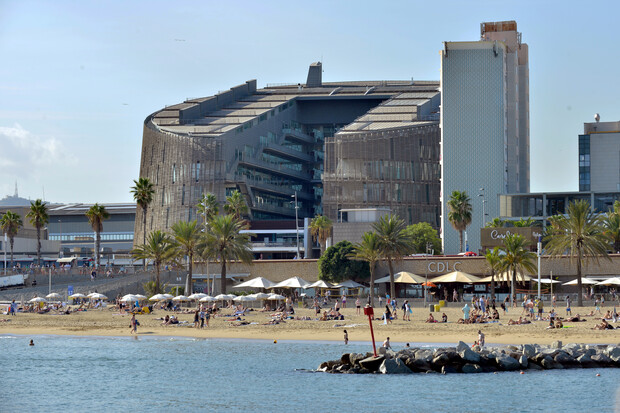
Accommodation is not included in the conference registration fee.
Below is a list of hotels that are located near the conference venue.
Please note that a city tax per person/per night for the stay needs to be paid (whether you book in a hotel or through Airbnb).
| Hotel Name | Address | Bookings |
| H10 Marina | Avinguda del Bogatell, 64-68 Olympic Village, 08005 Barcelona (map | website) | Tel. +34 933 09 79 17 corporate.hmb@h10hotels.com grupos.hmb@h10hotels.com |
| H10 Port Vell | Pas de Sota Muralla, 9, 08003 Barcelona (map | website) | Tel. +34 933 10 30 65 reservas.hpv@h10hotels.com |
| Hotel SB Icaria: | Av. d’Icària, 195, 08005 Barcelona (map | website) | Tel. +34 932 21 82 00 reservations.icaria@sbhotels.es |
| Hotel Ibis Styles: | Carrer de Llull, 71, 08005 Hb004742, Barcelona (map | website) | Tel. +34 934 83 37 48 H9663@accor.com |
| RESA – campus del Mar Residencia | Pg. Salvat Papasseit, 4 08003 Barcelona (map| website) | Tel. +34 933 90 40 00 campusdelmar@resa.es |
| RESA – La Ciutadella Residencia | Passeig Pujades, 33-37 08018 Barcelona (map| website) | Tel. +34 933 94 32 00 ciutadella@resa.es |
Lunches and coffee breaks are included in the registration fee. The lunch buffets and coffee breaks will be set-up in front of the Auditorium. Snacks will be served on the first evening of the workshop during the Welcome reception (PRBB terrace), as well as during the poster sessions (groundfloor beneath the Auditorium).
Dinners are at the participants own expense unless otherwise specified.
Please wear your badge at all times when serving yourself.
No food or drinks are allowed in the PRBB auditorium.
The mains voltage in Barcelona is 230 volts AC. The flat European standard and the Schuko plug CEE 7/7 fit into the Spanish sockets. Most Europeans do not need to buy an adapter plug for Spain. Please note that there are no power outlets in the auditorium. You can recharge your electronic devices at the reception area. We kindly ask you to bring your own charger cables. The charging station will be left unattended.
Please read Barcelona’s COVID-19 terms and conditions for events.
Smoking is prohibited in all PRBB facilities
Eating and drinking is prohibited in the Auditorium.
Do not enter any restricted areas or the laboratories unless authorised to do so.Do not enter any restricted areas or the laboratories unless instructed to do so.
If first aid is required …
In case of fire …
Beyond first aid…
Please remember to bring your own medication, if needed, to the conference.
Ensure in advance that your medical insurance will cover you during your visit in the event that you do need to see a doctor.
It is easy to access the internet via a wireless connection in any area of the building. When connecting a mobile device, the operating system automatically recognises the network “PRBB”. The passport for this network is “darwin1809”.
The PRBB also participates in the Eduroam project, which aims to allow network access for visitors from academic institutions associated with Eduroam. Access to the service is always delivered with the same credentials as in the home institution.
“Lost and Found” items are kept at Registration and will be stored at the EMBL Barcelona reception for a short whileafter the EMBO workshop.
There are no lockers available on-site to store your belongings. It is highly recommended to leave any valuables in your accommodation. An unguarded wardrobe area is behind the registration desk. You may use this wardrobe at the last day of the Workshop to store your luggage.
The venue is directly located at the beachside. Be aware of your surroundings and belongings when leaving the building.
In case of emergency, contact Security on the ground floor:
Ext. 1020 / 0034933160020
Reception: Ext. 1000 or 0034933160000
Below are the most important emergency service phone numbers for Barcelona.
Fire service: 080
Medical emergencies: 061
Police (Mossos d’Esquadra): 088
The Mossos d’Esquadra are Catalonia’s autonomous community police force. They are responsible for crime investigations, crime prevention and assistance at accident scenes.
Guàrdia Urbana: 092
The Guàrdia Urbana are responsible for public order by patrollling the roads and streets. They also look after traffic safety and control. The Guardia Urbana are also the first point of call for everyday situations such as neighbourhood disputes like noise etc.
All general emergencies: 112
If you become ill during the event, please notify the Conference Officer(s) immediately.
During the conference an EMBL Photographer may be taking photographs. If you would not like to appear in these, please inform the photographer or a member of the Course and Conference Office.
It is highly recommended to leave any valuables in your accommodation. The venue is located at the beachside which is a very busy area. Be aware of your surroundings and belongings when leaving the building.
A variety of activities in Barcelona can be found in this website: https://www.barcelona-tourist-guide.com/
Spain operates on Central European time (CET), which means that the country is 6 hours ahead of eastern standard time (EST) in the United States and 1 hour ahead of Greenwich mean time (GMT).
Our EMBO Workshop partner hotel, the “H10 Marina”, is a 15 minutes walk to the venue.
If you prefer, you can also take the bus. The next bus stop is in 6 minutes walking distance to the hotel. Line V27 is departing from Av Icària – Joan Miró to Pg Marítim – Hospital del Mar. From there it is another 3 minute walk.
Additionally, a taxi stand is located just outside the hotel main entrance.
Hotel address: Avinguda del Bogatell, 64-68 Olympic Village, 08005 Barcelona
| English | Spanish |
|---|---|
| Hello | Hola |
| Good morningGood afternoonGood eveningGood night | Buenos díasBuenas tardesBuenas nochesBuenas noches |
| I’m sorry | Lo siento / Perdona |
| Excuse me… | Perdóneme… |
| How are you? | ¿Cómo estás? |
| I’m fine thanks. And you? | Estoy bien, gracias. ¿Y usted? |
| What is your name | Cómo te llamas |
| My name is | Me llamo |
| Do you speak English | Habla usted Inglés |
| I don’t understand | No entiendo |
| Please speak more slowly | Por favor hable más despacio |
| Thank you | Gracias |
| Where is the toilet? | ¿Dónde está el servicio? |
| Please call me a taxi | Puedes avisar/llamar un taxi, por favor? |
| How do I get to….? | Como llego a….? |
| A beer/two beers please | Una cerveza / dos cervezas por favor. |
| A glass of red/white wine please | Un vaso de vino tinto / blanco por favor. |
| The menu, please | El menú, por favor |
| Is there a local speciality? | ¿Hay alguna especialidad local? |
| I’m Vegetarian | Soy vegetarianoa |
| It was delicious | Estaba delicioso |
| The bill, please | La cuenta, por favor |
| I have a headache | Me duele la cabeza |
| I have a sore throat | Tengo dolor de garganta |
| My stomach hurts | Me duele el estómago |
| I’m allergic to | Soy alérgico a |
| I need a doctor who speaks English | Necesito un médico que hable inglés |
Barcelona-El Prat airport is located in El Prat de Llobregat just 12 km South West of the Barcelona city centre. It has two passenger terminals: Terminal 1 (T1) and Terminal 2 (T2). The airport has allocated airlines to terminals, regardless of the destination of the flight.
Airport Transfers to the city centre
The Aerobús is an express bus service that connects the Barcelona-El Prat airport with the city centre (Plaça Catalunya) in 35 minutes. You can take the Aerobús outside Terminal 1 (A1) and Terminal 2 (A2). This service runs every day of the year with departures between 5 and 15 minutes. From the city centre, you can take the metro or a bus to move around Barcelona.
The train service (R2 line) runs approximately every 30 minutes to and from Barcelona airport to the city centre. The journey takes 25 minutes. The train service operates from Terminal 2 (T2). To get from T2 to T1, use the shuttle bus service (Bus transit T1-T2). If you travel from the airport to the city centre, you can get off at Barcelona-Sants, Passeig de Gràcia or Clot which are serviced by metro stops.
You can also take the metro line L9 (orange) from the airport. It departs at Terminal 1 and connects at stations Torrassa (L1 and L10 Sud), Collblanc (L5 and L10 Sud) with metros to the city centre.
You will find a taxi rank outside any of the main terminal exits. Look for the sign pointing to the nearest taxi rank. All official Barcelona taxis are black and yellow and are required to charge you only the value on the taximeter (plus any surcharge, e.g. luggage or night). The rates and surcharges are displayed inside the cab. In Barcelona, a taxi may be either ordered by phone, found at authorised taxi rank or flagged down in the street.
Barcelona Sants is the main train station for national and international arrivals and departures in Barcelona. It is situated in plaça dels Països Catalanes – Barcelona. National and regional trains also depart from França station. It is located at avinguda Marquès de l’Argentera, s/n – Barcelona.
Metro and tram
The metro network of Barcelona is very good and the trains are frequent and quick. You do not have to worry about timetables. Almost all attractions are within walking distance of a metro or tram station. When there are no subways, the gap can be filled by tram.
You can find the operating hours of the metro and tram here.
Buses
The operating times of the buses are different for each line. You will find a notice board with the timetable at each stop. They operate from about 5:00 clock to about 22:00 clock.
Night bus (NitBus)
Both the metro and the buses do not run all night. In Barcelona, there is a fairly dense network of night buses to get you back to your hotel all night long. Except for the line N0 all lines stop at Plaça Catalunya and can change there. The N0 line is a circular line that allows you to circle around the city center and change to the other NitBus. The night buses are operated by the private operator AMB, which is why the Barcelona Card and Hola BCN Ticket are not valid.
The N17 line goes to the airport.
The operating hours of the NitBus are different for each line, but they run from about 22:00 to 05:00 clock.
A medicinal mask, either surgical or FFP2 (the latter is recommended) to be worn at all times indoors, except when eating or drinking and especially when in the auditorium or at the registration desk.
Masks must be worn in the following areas:
For more information please check: https://web.gencat.cat/ca/activem/restriccions-territorials/catalunya/#bloc1
Any vaccine authorised by theEuropean Union (European Medicines Agency, EMA) and WHO will be accepted. Certificates with vaccines not authorised by these agencies are also acceptable, but the last dose administered must be of one of the authorised vaccines.
Complete vaccination schedules are defined as those established in the COVID-19 Vaccination Strategy in Spain.
From 1 February 2022, proof of vaccination is valid from 14 days after the date of administration of the last dose of the complete vaccination schedule and will be valid up to 270 days from the date of administration of that last dose.
Thereafter, in order to be valid, the vaccination certificate must reflect the administration of a booster dose. These certificates will be considered valid since the day the booster dose was administered.
Certificate of Recovery: corresponds to a test no more than 180 days after the date of the first positive NAAT test result and no earlier than the 11th day following the date of that positive test result. The certificate must state the date of the first positive test.
You can find the latest information on entry and entry requirements for Spain on the Spain Travel Health Website. Please make sure to carefully read the information and to comply with all requirements and to carry the necessary supporting documentation.
An antigen rapid test costs approximately 35-45€, a PCR test approximately 85-100€. You can also find more information about the different tests and links to some test centres here.
Costs of the test must be covered by the participants.
If during the conference you test positive or develop symptoms associated with COVID-19, such as reduced sense of smell and taste, chills, sore throat, muscle aches, headache, general weakness, diarrhea or vomiting, you should:
1. Refrain from coming to the event, or leave promptly
2. Contact the health service: contact the corresponding health authorities of the Autonomous Communities by telephone. If you feeling that the illness is serious, you have shortness of breath or chest pain, call 112
3. Call 933 038 158, where they will also assist you in English
Specific rules and restrictions for Catalonia can be found here: https://web.gencat.cat/ca/activem/restriccions-territorials/catalunya/#bloc1
Further information is also available via: https://spth.gob.es/faq?tab=2
Event sponsor
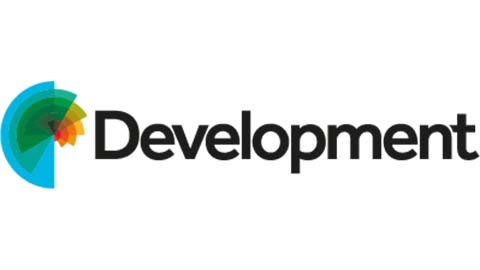
Media partners
Development, a The Company of Biologists journal
EMBO reports, an EMBO Press journal
Genes and Development, a Cold Spring Harbor Laboratory Press journal
International Union of Biochemistry and Molecular Biology
Open Biology, a Royal Society journal
Sponsorship opportunities
We offer a variety of event sponsoring possibilities, with the flexibility to select a set sponsorship package or combine individual sponsorship options to suit your event budget. Discounts are available for companies sponsoring multiple events at EMBL Heidelberg. View other conferences, or contact sponsorship@embl.de for further information.
If you are interested in becoming a media partner of this event, please visit our media partnerships webpage.

Date: 29 Jun - 1 Jul 2022
Location: EMBL Barcelona
Deadline(s):
Abstract submission: Closed
Registration: Closed
Organisers:
Contact: Aline Schnieder